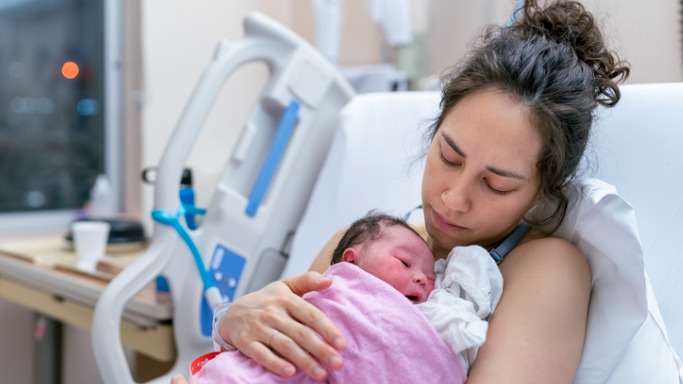Not long ago, Mother’s Day was the quintessential Hallmark holiday, a holiday where children and spouses scrambled to buy flowers, send cards and organize brunch to thank mom for the under-appreciated work she does to raise the next generation.
This Mother’s Day, moms need something more than flowers and brunch: We need people to stand up and defend the very concept of motherhood and what it means to be a woman.
Right now words such as “mother” and “pregnant women” are being scrubbed from public discourse by woke activists who insist that common sex-based terms are not inclusive. And indeed, the term mother does invoke a distinctly feminine image, drawing upon women’s role not only in nurturing children, but in actually gestating and bringing them into this world.
Of course, millions of women are mothers who have never given birth themselves, but who embraced the sacrificial nurturing love and labor associated with mothering.
The President’s Fiscal Year 2022 Budget removed the word “mother” from the section related to spending on maternal health, referring instead to “birthing people.”
Women are being referred to as “bleeders” and “chestfeeders.” Even the sterile medical term “vaginal birth” is being replaced by “frontal birth,” in the name of inclusivity. Yet none of those terms feel inclusive — they feel demeaning.
Erasing the concept of womanhood from our vocabulary isn’t just a sign of a continuously evolving culture. Judge Ketanji Brown Jackson’s unwillingness to define the term “woman” at her Supreme Court confirmation hearing may have seemed like a joke or an artful political dodge.
But it is, in fact, an existential crisis. If society can no longer agree on the meaning of the term “woman,” then how can we defend women’s rights?
This is not a hypothetical situation, but a reality women are living with today: The Violence Against Women Act now requires that domestic violence shelters, which are supposed to be places of security and protection for women who have suffered traumatic abuse, overwhelming at the hands of men, admit biological men who identify as women.
Women are being referred to as “bleeders” and “chestfeeders.” Even the sterile medical term “vaginal birth” is being replaced by “frontal birth,” in the name of inclusivity. Yet none of those terms feel inclusive — they feel demeaning.
Erasing the concept of womanhood from our vocabulary isn’t just a sign of a continuously evolving culture. Judge Ketanji Brown Jackson’s unwillingness to define the term “woman” at her Supreme Court confirmation hearing may have seemed like a joke or an artful political dodge.
But it is, in fact, an existential crisis. If society can no longer agree on the meaning of the term “woman,” then how can we defend women’s rights?
This is not a hypothetical situation, but a reality women are living with today: The Violence Against Women Act now requires that domestic violence shelters, which are supposed to be places of security and protection for women who have suffered traumatic abuse, overwhelming at the hands of men, admit biological men who identify as women.
But this isn’t just happening in swimming: across sport and across the country, biological males are entering athletic competitions meant for women and girls. Female athletes around the country are now left wondering why they should bother, when any biological male may decide to enter their arena, smash their records, steal their scholarships and turn their competitions into theater.
We mothers don’t need a bouquet of flowers or a card, nice as those can be.
We need to ensure that women still have legal rights, including the freedom to associate in single-sex spaces.
We want this for ourselves and we most fervently want this for our daughters.
We need a Women’s Bill of Rights that affirms that the terms “woman” and “female,” like motherhood, are rooted in biology and cannot be appropriated or erased.


